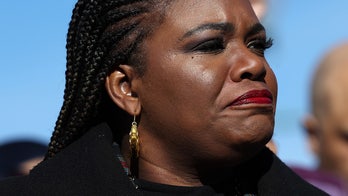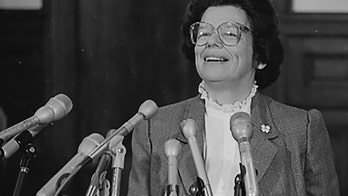It is unclear where the "defund the police" movement stands in 2022 as homicides and violent crime continue to rise in major U.S. cities and officer deaths reach record highs.
Different versions of the demand to "defund" or redistribute funding from police departments to other community initiatives were popularized after the May 2020 death of George Floyd, a Black Minneapolis man killed by Derek Chauvin, a White police officer.
But since then, there has been little change to police budgets in Democratic-leaning cities since 2020 as departments across the country face staffing shortages.
MURDERS ROSE 5% IN 2020 COMPARED TO 2021; 44% COMPARED TO 2019: STUDY
"Most of the jurisdictions who called to defund the police have quietly refunded their police departments. They have quietly asked for more law enforcement personnel," retired Sgt. Betsy Brantner Smith, spokesperson for the National Police Association and a 29-year police veteran who currently trains officers, told Fox News Digital. "… So, you're hearing a different tone now."
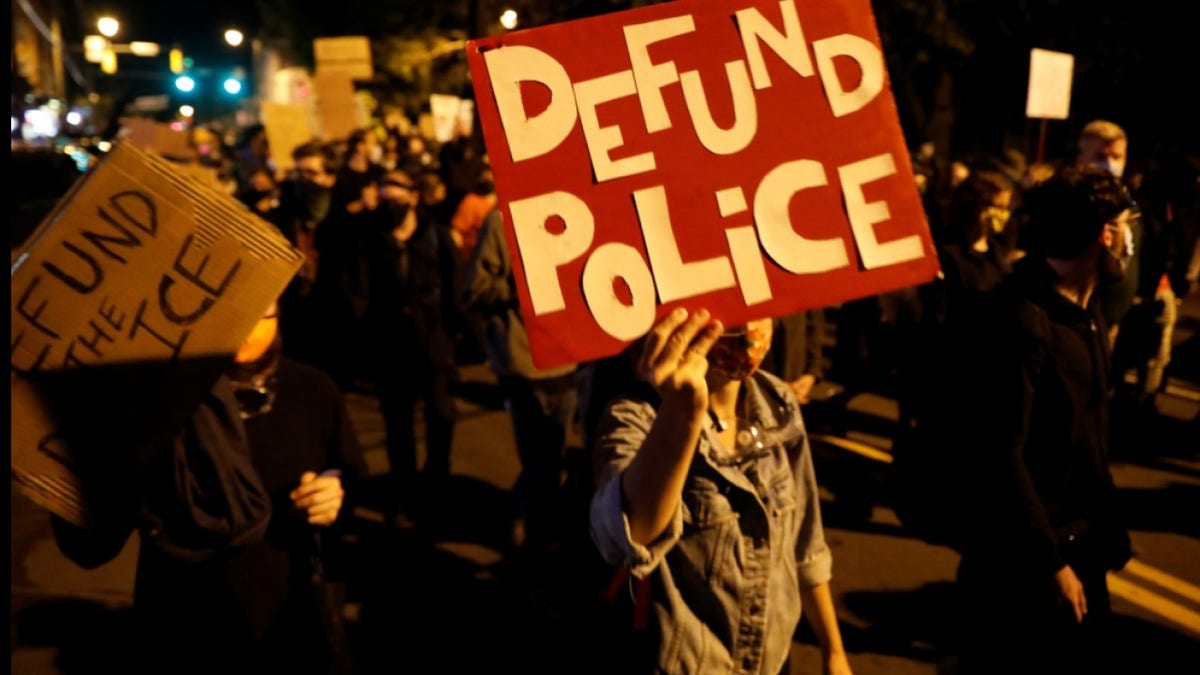
Demonstrators hold a sign reading "Defund the police" during a protest Sept. 6, 2020, over the death of a Black man, Daniel Prude, after police put a spit hood over his head during an arrest on March 23, in Rochester, New York. (Reuters/Brendan McDermid)
Police staffing shortages have been caused in part by COVID-19, retirements, and recruiting or retainment issues as officers in large cities move to smaller, suburban towns, according to both Brantner Smith and Lisa Dadio, a former lieutenant from the New Haven Police Department and assistant dean and director of the Center for Advanced Policing at the University of New Haven.
"In several of your larger cities, budgets have been increased to police departments," Dadio said. "And the big thing is: people don't feel safe. So, in a city that thrives on tourists coming and entertainment, if people don't feel safe, all of that's going to be impacted, and [it] impacts tax on food and beverages and entertainment. It really has a catastrophic effect across everything."
LOS ANGELES SEES DIP IN MURDERS, GUN VIOLENCE IN FIRST 3 WEEKS OF 2022, CHIEF SAYS
Political Rhetoric since 2020
Politicians began arguing in 2020 that pulling funds from police departments and putting the money toward other community investments such as schools would decrease crime and make cities safer. Some claimed police make communities less safe by harming or killing innocent civilians.
Rep. Ilhan Omar, D-Minn., said in a June 8, 2020, tweet that the "defund the police" movement, which Minneapolis City Council members spearheaded after Floyd's death, "is one of reimagining the current police system to build an entity that does not violate us, while relocating funds to invest in community services."
"Let’s be clear, the people who now oppose this, have always opposed calls for systematic change," she wrote.
Omar also said in 2020 that "violence is a basic part of police interactions with communities of color." The congresswoman has described her local police department as "beyond reform" and "rotten."
But despite strong calls to reduce police department funding in the city, the police budget only decreased by about $1 million, from $183 million in 2020 to $181.9 million in 2021. Meanwhile, there were 96 homicides in Minneapolis in 2021 – a near-record for the Midwestern city – and a 57% increase in carjackings.
Omar's office did not respond to an inquiry from Fox News Digital asking if she stands by defending police or how she plans to make communities safer amid rising crime.
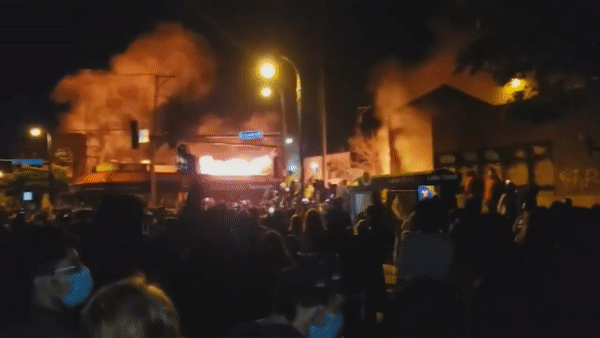
Protesters in Minneapolis, Minnesota, took over and burned the police department’s 3rd Precinct building on May 28, 2020, as the city’s unrest continued for a fourth day following the death of George Floyd. (Nick Espinosa via Storyful)
Cities represented by members of Congress and other local politicians who made calls to defund police have experienced little to no decrease in funding coupled with high crime rates. Demands to defund or redistribute funds from police departments have grown quieter, especially in Washington.
In New York City, Democratic Reps. Alexandria Ocasio-Cortez and Jamaal Bowman, along with thousands of protesters in 2020, called to redistribute police funding in 2020.
NYPD OFFICER DIES OF HIS INJURIES FOLLOWING HARLEM SHOOTING THAT KILLED PARTNER
Ocasio-Cortez likened criticisms of "defund" police and "socialism" to "racial resentment attacks."
Despite promises from former Mayor Bill de Blasio and other city leaders to slash $1 billion from the New York Police Department budget, the plan did not completely transpire. The city's NYPD budget only decreased about 3%, from $10.2 billion in 2020 to $9.9 billion in 2021.
However, there were 485 homicides and 1,857 shooting victims in New York City in 2021. Carjacking incidents increased 355% in the five boroughs last year compared to 2018. At least five police officers have been shot – including two fatally – so far this year.
The offices of Ocasio-Cortez and Bowman did not respond to inquiries from Fox News Digital.
White House press secretary Jen Psaki said in April 2021 that "too often" law enforcement uses "unnecessary force" that results in the death of "Black and Brown Americans."
Rep. Cori Bush, D-Mo., tweeted, "Defunding the police isn’t radical, it’s real," and that "defunding" means divesting "from the parts of our society that are harming and killing us" and investing "in the parts that help keep us healthy and alive." Rep. Barbara Lee, D-Calif., called to "overhaul our policing system."
NYC MAYOR REINSTATES POLICE UNIT DE BLASIO DISBANDED DURING DEFUND POLICE MOVEMENT
Lee and Bush also did not respond to inquiries from Fox News Digital.
Rising crime
Crime has risen in major U.S. cities despite little to no decreases in police department funding. Dadio says the recent crime spike has to do with a combination of the impacts of COVID-19 and a lagging criminal justice system, as well as overwhelmed departments due to staffing shortages.
"We saw what most of us in the profession knew was going to happen," Dadio said. "Crime just skyrocketed, and [there are a] lack of resources. The pandemic definitely didn't help with officers getting sick and dying and not being able to perform their duties due to the pandemic. … [Police departments] were not hiring and, en masse, police officers retired throughout the country."
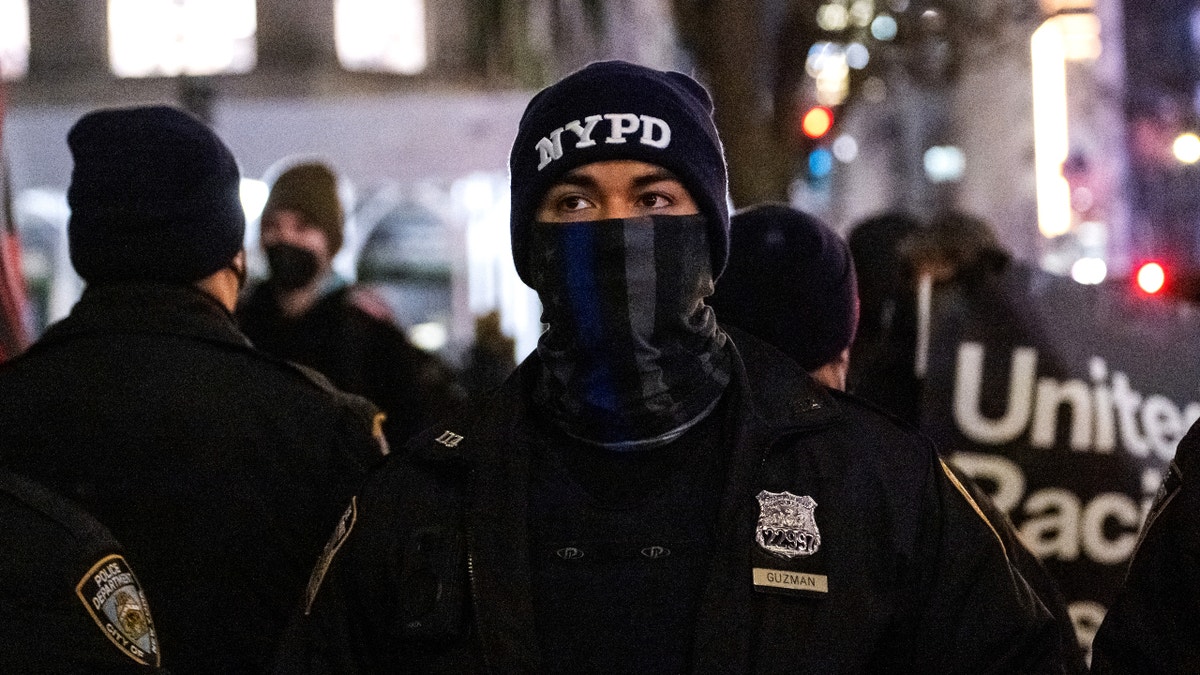
A member of the NYPD wearing a "back the blue" face mask. (Alexi Rosenfeld/Getty Images)
Police are trying to fill vacancies while crime is rising and legal proceedings are delayed as district attorneys and other local politicians target reduced prison populations, shorter sentences and bail reform at the same time.
Murders across 22 U.S. cities rose 5% between 2020 and 2021, and 44% between 2019 and 2021, according to a recent update from the Council on Criminal Justice (CCJ). Other forms of violent crime also increased. Fox News Digital previously reported on record homicides in more than a dozen cities last year and a 30-year record in Atlanta.
HARLEM ‘AMBUSH’: NYPD OFFICER JASON RIVERA HONORED AT VIGIL: ‘VIOLENCE WON’T DIVIDE US’
The number of police and law enforcement officers who died in the line of duty (458) jumped 55% from 2020 to 2021 – with the majority (301) succumbing to COVID-19-related illness. Meanwhile, 62 officers were fatally wounded – a 38% increase from 2020. Nineteen of the 62 officers who were fatally shot in the line of duty were ambushed, the report finds.
"This rhetoric that, somehow, police are the problem is still coming from the radical left," Brantner Smith said. "…The police, unfortunately, have been horribly politicized, so while you're going to see all this quiet refunding of police budgets all around the country, I believe we're going to continue to see this anti-police rhetoric."
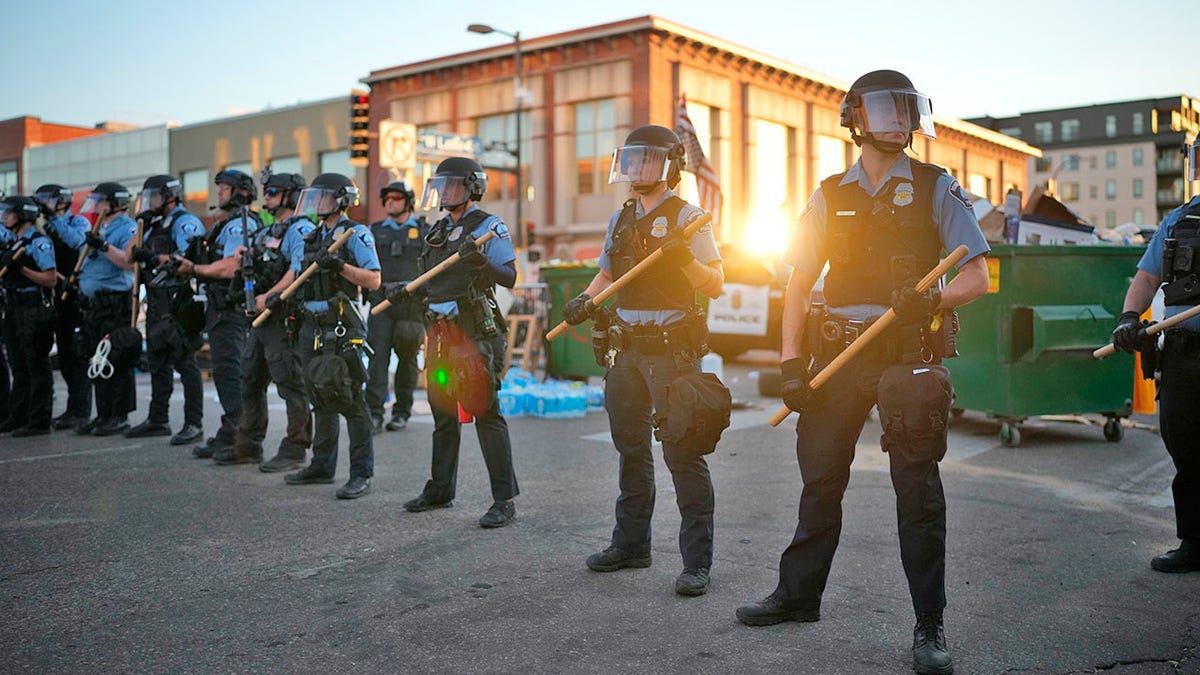
Police descend on the block-long stretch of Lake Street in Uptown just before sunset to dismantle the barricades erected by protesters on June 15, 2021, in Minneapolis. (Jeff Wheeler/Star Tribune via AP)
She added that such rhetoric "goes back to the increase in attacks on American law enforcement," as well as increased crime.
Solutions
Brantner Smith says the solution does not lie in defunding police departments or demonizing police.
"We see more trauma and tragedy in the first two years of our career than some people see in a lifetime," she said. "…There's a lot of human depravity out there, and American law enforcement gets cast with having to deal with that."
SLAIN ARMY VET'S MOTHER BLAMES BAIL REFORM FOR LETTING ACCUSED MURDER WALKS FREE
Politicians have an "opportunity" to decrease the number of violent interactions between police and civilians, Brantner Smith said.
"When a police officer makes a traffic stop, and the citizen who is the subject of the traffic stop cooperates, nobody gets hurt," she continued. "The more anti-police rhetoric … that frightens especially young people, and they are less likely to cooperate with police. That creates the danger of a police officer … or a citizen getting hurt at the hands of police officers."
Dadio said one of the positive outcomes of the "defund" movement was a larger focus on partnerships between police, community members and mental health experts to reduce the strain on officers responding to both crime and mental health calls on a daily basis.
CLICK HERE TO GET THE FOX NEWS APP
"You can no longer say we're going to continue to defund or reallocate when everybody is being impacted by the rise in crime. I think that there is a benefit to it in that we have other services that can respond to other calls," she said, adding later that some police tactics have "gone back to truly the roots of community-based policing and working hand-in-hand with our community members."
Additionally, new legislation, such as laws requiring body cameras for police in certain cities, costs more money, not less; not only for the cameras themselves but for computer storage to retain hours and hours of footage.
"We don't have all the answers as a profession. A lot of times, incredible ideas come from our community," she said.



